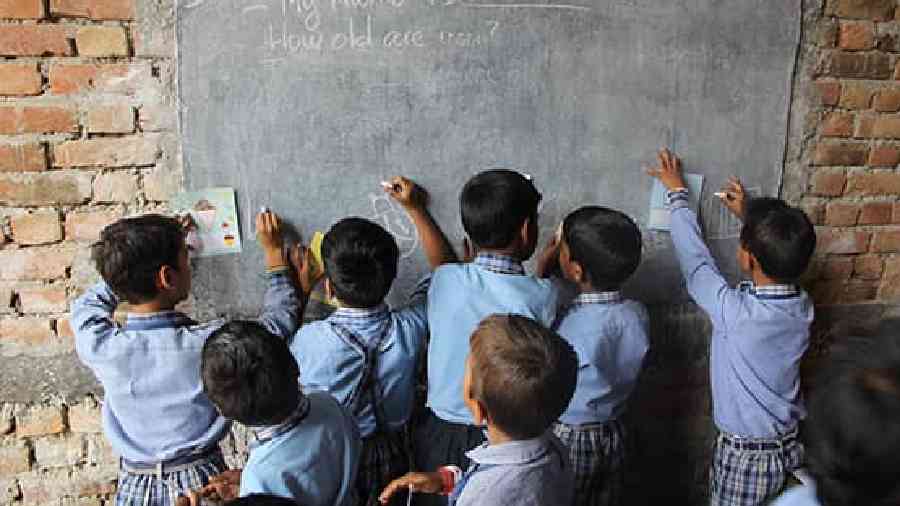The state education department has initiated steps to bring back to class students "who have had to drop out of the schools due to financial constraints during the Covid pandemic”.
An order issued by the directorate of the school education on July 13 says the district education officers will identify the students who have not been attending schools, with help from anganwadi workers, Asha (accredited social health activist) workers, health workers and other government officials.
The order says: "Children who have been absent from his or her school for 30 consecutive working days....That all children above the age of 14 years who do not fall under the purview of RTE (Right to Education) Act but have had to drop out of school due to financial constraint… shall be treated as an out of school child".
The Telegraph had reported in December that the headmaster and some teachers of a school at Hingalganj in North 24-Parganas district were visiting the homes of dropout children to try and bring them back to school.
A number of students have dropped out as the widespread pandemic-induced economic distress forced them to take jobs, at times outside the state, for a few hundred rupees, an official in the education department said.
Supriya Panja, headmaster of The Park Institution in Shyambazar, said he had sent para teachers on Wednesday to trace the students who had dropped out.
“The dropout level is maximum at the level of Class IX and X. Financial hardships faced by families are forcing students to take up odd jobs,” the headmaster said.
This newspaper had reported on June 30 that the department had asked the heads of government-run and aided schools to take steps to improve attendance, which was not satisfactory on the day the schools reopened after a prolonged summer vacation on June 27.
The head of an institution, while explaining the factors behind the slide in attendance, said many underprivileged families had sent sons or daughters to work during the Covid pandemic.
An official of the education department said the dropout was being reported from private schools as well, as the children of many guardians who could not afford fees have been forced to discontinue studies.
“A few of them have got their children enrolled at government or aided schools,” he said.
The July 13 order says the data of the children who need financial assistance for education can be forwarded to the district education officers.
“The officers can request the schools concerned to waive fees for such children, then provide these children with scholarships, and or provide financial aid through donors, NGOs. After exploring all possibilities to meet the financial assistance, if any further funding is required, the nodal officer may approach the government for reimbursement,” says the order.
The Telegraph had reported on November 18 last year that the Annual Status of Education Report (ASER) 2021, released by the NGO Pratham, recorded a drop of more than 8 percentage points in private school enrolment from 2018 to 2021.
This drop is accompanied by a rise of 6 percentage points in government school enrolment.
The Bengal government’s order says all categories of schools - aided, unaided and private - will try to “include children who have lost both or either of the parents after April 2020”, under the provision of Section 12 (1) (c) of the RTE Act.
The section states private unaided schools will provide free education to children from disadvantaged and weaker sections.
